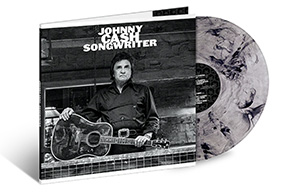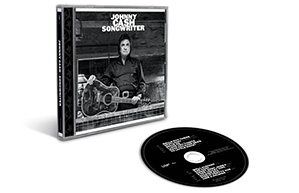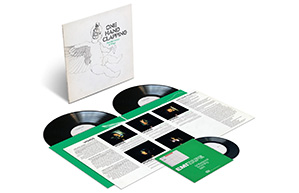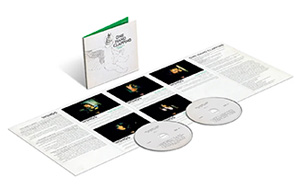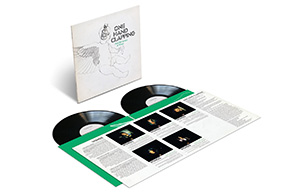Best Bill Anderson Songs: 20 Talk-Singing Country Classics
The man known as Whisperin’ Bill helped pioneer talk-singing, a country music style that bore deep drama even without over-the-top crooning.
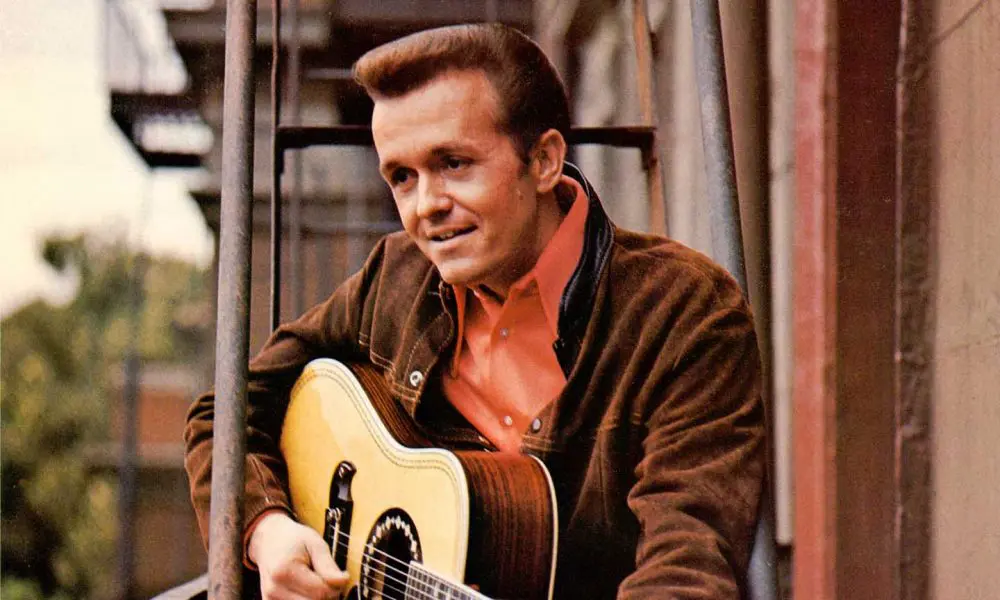
Country singer-songwriter Bill Anderson remains best-known today for his canonical contributions to the genre’s repertoire: Lefty Frizzell’s “Saginaw, Michigan,” Connie Smith’s “Once A Day,” Jean Shepard’s “Slippin’ Away,” and Charlie Louvin’s “I Don’t Love You Anymore” – as well as the celebrated “City Lights.” But as “Whisperin’ Bill,” Anderson helped pioneer a country-specific subgenre of talk-singing (which in his case included much more talking than singing) – one that bore deep drama even without over-the-top crooning. His biggest hits as a solo artist almost all featured it.
Check out the new compilation As Far As I Can See: The Best Of Bill Anderson here.
The songwriter grew up in Decatur, Georgia, but became a favorite in Nashville before he was even out of his teens. In the ensuing decades, Anderson also became a fixture of the country-oriented TV scene, hosting shows through the 60s, 70s, and 80s while remaining a country radio stalwart.
When his career briefly ebbed in the early 1990s, a new generation of country artists commissioned his work to add to their catalogs: Vince Gill, Brad Paisley, Steve Wariner, George Strait, and more have all made his tunes into hits. What follows are just a few of Bill Anderson’s best songs.
“8 X 10,” Bill Anderson Sings (1963)
A tonally similar follow-up to Bill Anderson’s 1963 megahit “Still,” “8 X 10” is a sweetly-intoned tribute to a long-lost love. “I wish I could just be the glass in that frame,” Anderson says at one point in the song, alluding to the frame’s closeness to an image of his former flame. The song landed at No. 2 on Billboard’s country chart.
“Three A.M.”, Showcase (1964)
Conventional wisdom suggests that nothing good ever happens after 2 AM, and this dark tune takes that idea to its logical extreme. Bill Anderson sings from the perspective of a heartbroken man, wandering the streets at 3 AM – ostensibly looking for a drink, but also wallowing in his loneliness. Despite the grim turn this song takes in its last verse, it still became a top 10 hit on Billboard’s country charts.
“Liars One, Believers Zero,” Peanuts and Diamonds and Other Jewels (1976)
While Bill Anderson has typically played the role of the heartbroken victim in his songs, this single found him taking up the mantle of the badly-behaved partner – using his silky whisper to intone familiar untruths instead of charming declarations of love. The track, written by storied country songwriter Glenn Martin, reached No. 6 on Billboard’s country chart in 1976, towards the tail end of Anderson’s commercial peak as a solo artist.
“Quits,” Bill Anderson’s Greatest Hits, Vol. 2 (1971)
This confusingly calypso-tinged song contains some impressive depth within its lyrics. It describes all the push and pull of a relationship in its final days, the necessary and yet impossible compromise between malevolence and affection. “Yet we couldn’t call it hate, because there’s no way to hate someone you’ve loved so much before,” Anderson sings.
“For Loving You,” For Loving You (1967)
Country’s duet craze, which lasted from the late 1960s through the early 1970s, often coincided with the genre’s televised affiliates. Bill Anderson was no exception, having hosted a program called The Bill Anderson Show for nearly a decade during that period; such programs almost always had a “girl singer” attached to their male leads, and in Anderson’s case, that “girl singer” was Jan Howard. This song epitomizes the kind of pious, squeaky-clean ideals put forth on the show, as Howard and Anderson describe a love so intense that it’s nearly religious – even after it ends. It was not written by Anderson; instead, the Tin Pan Alley-trained Steve Karliski devised the dramatic back-and-forth.
“Love Is A Sometimes Thing,” Love Is A Sometimes Thing (1970)
This track, written by Bill Anderson’s duet and TV partner Jan Howard, expresses an evergreen sentiment about inconstant romance. With a jangling piano in the background and sturdy vocal support, Anderson achieves both a striking vocal sound and pleasantly casual production (made more so by the piped-in crowd noise).
“Mama Sang A Song” (1962)
Bill Anderson first broached the recitative style that would become his signature on this single, essentially an elaboration on the “humble folks living through hard times” themes of “Po’ Folks” – the hook, as it were, comes courtesy of the background singers, who croon various hymns in between Anderson’s storytelling. The track, the first on which Anderson hadn’t sang at all, was also his first No. 1 on Billboard’s country chart, and stayed atop that chart for seven weeks total.
“I Get The Fever,” I Love You Drops (1965)
Bill Anderson took a more uptempo tack on this song, which became his third No. 1 song on the Billboard country charts. Its subject isn’t quite as steamy as the title suggests – instead, the fever Anderson wrote and sang about was to wander the “open plains” and (as is so often the case in Anderson’s compositions) to find a way to avoid thinking about a painful lost love.
“World of Make Believe,” Bill (1973)
This No. 1 country song capped Bill Anderson’s remarkable run through the late 1960s and early 1970s, in which he had 13 straight solo singles reach the top ten of Billboard’s country chart. “World” mines Anderson songs of an earlier vintage, but it’s the rare Anderson hit that he didn’t write himself. In this case, he revived a little-known 1950s R&B song to great effect, using the retro composition to reprise much of the same tone from his longing 1963 monologue, “Still.”
“Get a Little Dirt On Your Hands,” Still (1962)
One of Bill Anderson’s earliest songs spoke to some of country music’s most persistent concerns – namely, authenticity, and what it takes to be really, truly country. It wasn’t enormously successful when it was initially released, but David Allen Coe recruited Anderson to revive it with a funky 1980 duet that introduced it to a whole new generation of fans.
“The Guitar Song,” The Guitar Song (by Jamey Johnson) (2010)
Bill Anderson’s late career renaissance has mostly taken place behind the scenes, where he’s written songs for many of the most respected names in contemporary country music. Jamey Johnson is among them, and on this co-written song, Johnson asked Anderson to add his trademark speak-singing – this time, affecting not overwrought emotion, but a plain-spoken nostalgia for the bygone days of country music, the ones that Anderson (and the pawn shop guitar he describes) know better than almost anyone.
“Po’ Folks” (1961)
One of Bill Anderson’s early hits, the vintage-sounding song became one of the singer’s signatures in the decades following its release. Although the banjo and harmonica give the song a kitschy, almost over the top affect, within the lyrics is a surprisingly specific and vivid portrayal of rural poverty – one that Anderson didn’t profess to have personally experienced. “We live next door to a millionaire, but we wasn’t nothing but po’ folks,” he sings, describing a country experience much more grim than the humble-but-honorable cliches that had already begun to penetrate the music, in which families went hungry and got extorted by landlords. The song eventually inspired the name of a Southern restaurant chain, for which Anderson was a spokesman.
“Wild Week-End,” Wild Weekend (1968)
The twist might be visible from miles away, but this cheerful tribute to a romantic weekend escape with an unnamed woman who turns out to be the narrator’s wife still pleases. The song reached No. 2 on Billboard’s country chart, likely because the story was so relatable – Bill Anderson describes lying to everyone they know not because what he’s doing is illicit, but just so that he and his wife can leave town unbothered.
“My Life (Throw It Away If I Want To),” My Life/But You Know I Love You (1969)
The often buttoned-up Bill Anderson took a swing at the late 60s outlaw trend (there’s more than a little “Gentle On My Mind” in this one) with this single. It became his fourth No. 1 on Billboard’s country chart in 1969. “You try to make me think my nonconforming life has colored me some evil shade,” Anderson sings, a nod to both the waning hippie movement and those who, like him, worked in the unorthodox world of entertainment.
“The Tip Of My Fingers” (1960)
Anderson’s first top 10 on the Billboard country chart also became one of his most widely covered compositions – although the use of “Tip” and “Tips” in the title has varied throughout versions by Eddy Arnold, Jean Shepard, Roy Clark, and Steve Wariner. His own recording of it is among his better vocal performances, finding him crooning convincingly about coming just shy of a fairytale ending. The song’s lyrics eschew cliches about love for surprisingly sensual descriptions, with “sweet lips yielding beneath my command” and fingertips taking a central role.
“I Can’t Wait Any Longer,” Love…& Other Sad Stories (1978)
The singer-songwriter took a leap of faith with this sultry disco jam, a near-total aesthetic departure from any of his previous releases – and it paid off. Anderson’s trademark breathy speak-singing turned out to be a perfect fit over hip-swiveling dancefloor-ready grooves, and the track became his last crossover hit, reaching No. 4 on Billboard’s country chart and No. 80 on the Hot 100. Anderson spun a blush-inducing yarn about how he couldn’t “wait any longer for our bodies to touch” over an addictive bass line, proving his willingness to use any trend that might work to his advantage.
“If You Can Live With It (I Can Live Without It),” Bill (1973)
With this hit, Bill Anderson created a pitch-perfect kiss-off, complete with a chorus that begs audience participation and a memorable, hoe-down-ready groove. The song reached No. 2 on Billboard’s country chart, another addition to his early 1970s hot streak – one that was supplemented by his weekly televised variety show. The song isn’t exactly family fare, shaming the narrator’s unfaithful partner in somewhat explicit terms. For his part, at least, he can walk away guilt free. “I did the only thing I could do,” he sings, “Baby, I tried.”
“Sometimes,” Sometimes (1975)
Mary Lou Turner was Jan Howard’s replacement on The Bill Anderson Show, and once the show was canceled in 1974, she stayed on as tour support. Their first hit single, though, was about as far from the family values-centric world of country music television as possible. “Sometimes,” which topped the country charts in 1975, is a torrid, breathy tribute to infidelity allegedly inspired by the 1975 free love satire Shampoo. Anderson, in his trademark whisper, asks Turner if she is married; she croons, “Sometimes,” in response, and sleazy seduction ensues. It’s about as unlikely a hit as Anderson had in his career.
“Still,” Still (1963)
Bill Anderson’s most enduring single also marks the zenith of his commercial popularity as a recording artist. The singer-songwriter had just tapped into the greatest success of his career to that point with the spoken-word megahit “Mama Sang A Song.” So, Anderson elected to recreate it with “Still,” another song in which Anderson talked much more than he sang, but this time about a much less pious topic: lost love. By far his most successful single, “Still” reigned Billboard’s country chart for seven weeks in 1963 while also reaching the top 10 of the Hot 100 and Adult Contemporary rankings. The mournful tune affirmed Anderson’s “Whisperin’ Bill” moniker and influential signature sing-speak; he wasn’t the first to make talking over a country ballad popular, but Anderson and especially “Still” helped make the dramatic stage-whisper a staple of the genre.
“City Lights” (1958)
It is a perfect challenge to country convention that one of the genre’s most iconic songs is about New York City. One of Bill Anderson’s earliest compositions became his one-way ticket to the Nashville Songwriters’ Hall of Fame when it was picked up by Ray Price, and eventually a slew of other country legends including Mickey Gillis and Mel Tillis. But his original recording, made in 1957 when Anderson was still a journalism student at the University of Georgia, is just as charming as its more famous versions – and a little more convincing. Still a teenager, Anderson sang about trying (and failing) to drown the sorrows of lost love along the “Great White Way” while unwittingly writing his name in the country history books.
Listen to Bill Anderson’s best songs on Spotify or Apple Music.


